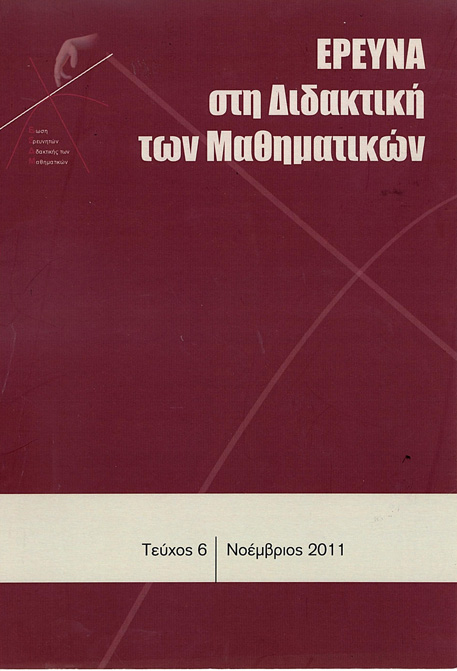Ένα μοντέλο για τον προσδιορισμό της γονεϊκής εμπλοκής των Ελλήνων γονέων στην εκπαίδευση των παιδιών τους στα Μαθηματικά

Περίληψη
Η εμπλοκή των γονέων στην εκπαίδευση των παιδιών τους αναγνωρίζεται πλέον ως σημαντικότατος παράγοντας για τη βελτίωση της αποτελεσματικότητας του σχολείου. Οι γονείς μπορούν με τις πράξεις και τις παραλείψεις τους, με τις βαθύτερες αντιλήψεις και στάσεις τους να ενισχύσουν ή να αποδυναμώσουν τις προσπάθειες που καταβάλουν τα παιδιά τους να γνωρίσουν, να μάθουν, να κατακτήσουν γνώσεις, δεξιότητες και ικανότητες. Στην εργασία επιχειρείται η καταγραφή των επιμέρους μορφών που λαμβάνει η εμπλοκή των γονέων και η σύνθεση τους σε ένα ερμηνευτικό μοντέλο με επίκεντρο τα Μαθηματικά. Μέσα από ένα δείγμα 1306 γονέων που έχουν παιδιά στο Δημοτικό σχολείο, εξετάστηκαν και αναλύθηκαν χαρακτηριστικά της γονεϊκής εμπλοκής ενώ έγινε προσπάθεια να αναδειχτούν οι επιπτώσεις τους και οι σχέσεις συνάφειας που παρουσιάζουν με δημογραφικές και κοινωνικοοικονομικές μεταβλητές. Η έρευνα ανέδειξε ένα μοντέλο που δομείται από έξι κατηγορίες γονεϊκής εμπλοκής. Τρεις μόνο από αυτούς συνδέονται με τις επιδόσεις στα Μαθηματικά.
Λεπτομέρειες άρθρου
- Πώς να δημιουργήσετε Αναφορές
-
Χαράλαμπος Λεμονίδης (Charalambos Lemonidis) Χ., Μαρκαδάς (Sotiris Markadas) Σ., & Τσακιρίδου (Eleni Tsakiridou) Ε. (2017). Ένα μοντέλο για τον προσδιορισμό της γονεϊκής εμπλοκής των Ελλήνων γονέων στην εκπαίδευση των παιδιών τους στα Μαθηματικά. Έρευνα στη Διδακτική των Μαθηματικών, (6), 61–80. https://doi.org/10.12681/enedim.15035
- Ενότητα
- Άρθρα

Αυτή η εργασία είναι αδειοδοτημένη υπό το CC Αναφορά Δημιουργού 4.0.
Οι συγγραφείς των άρθρων που δημοσιεύονται στο περιοδικό διατηρούν τα δικαιώματα πνευματικής ιδιοκτησίας επί των άρθρων τους, δίνοντας στο περιοδικό το δικαίωμα της πρώτης δημοσίευσης. Άρθρα που δημοσιεύονται στο περιοδικό διατίθενται με άδεια Creative Commons BY και σύμφωνα με την άδεια μπορούν να χρησιμοποιούνται ελεύθερα, με αναφορά στο/στη συγγραφέα και στην πρώτη δημοσίευση.

